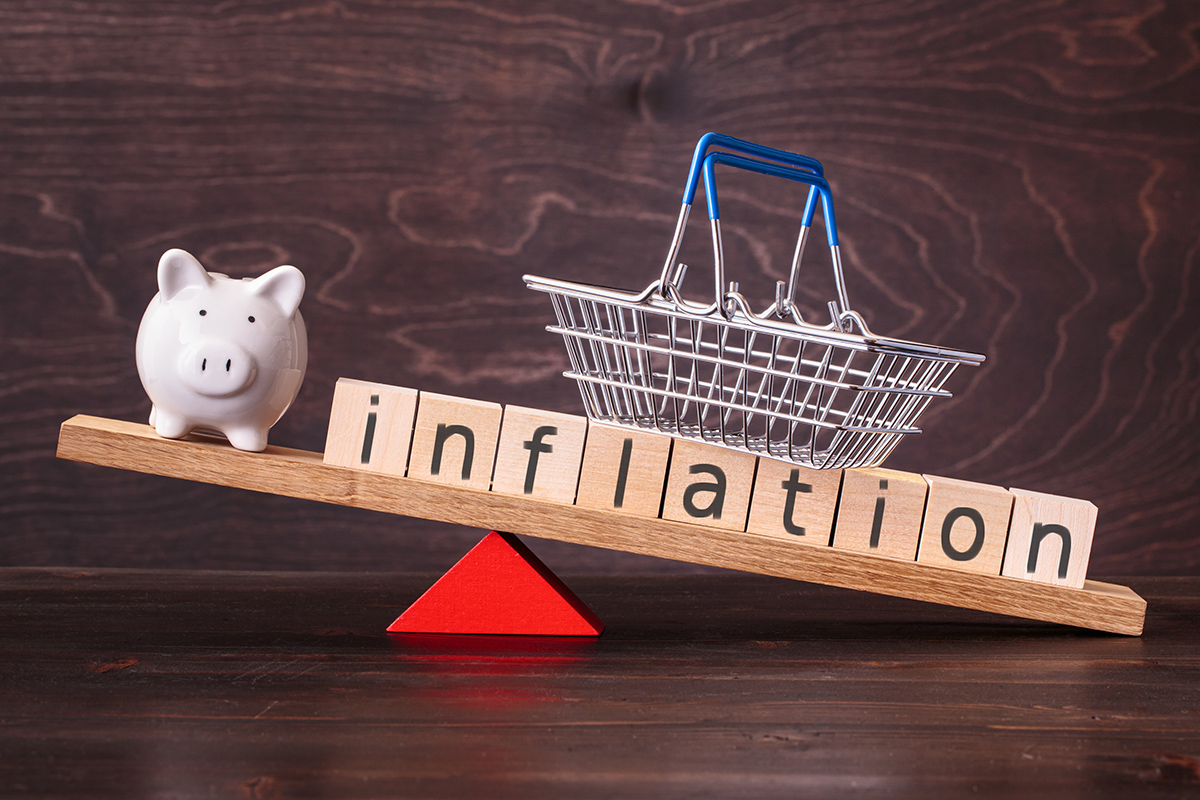Inflation needn’t burst our bubbles

There’s been plenty of talk about ‘peaks’ over the last 18 months, as the nation waits expectantly for signs that the worst of the global pandemic is behind us. With vaccinations now being rolled out across the UK, and people steadily returning to normal or ‘new normal’ routines, there is genuine hope that we are gradually moving into calmer waters.
Understandably, the pandemic has had a major effect on global investment markets. After a tumultuous period, it feels to me like a peak is nearing on the horizon. It’s a topic that I explored in our latest newsletter.
The economic rebound being experienced around the world is heartening after a period of such uncertainty, but it couldn’t last indefinitely. We are already seeing signs that the pace of growth is starting to wane, which had to happen eventually.
In the UK, we’re seeing promising signs that activity levels and productivity are returning to pre-pandemic levels. This is evidenced by our data which maps journeys across the country, with the lifting of travel restrictions bringing us to within 10% of equivalent figures for the start of 2020.
With return to ‘normality’ for people and businesses, we will inevitably see a slowdown in the pace of growth for the UK economy, but that doesn’t necessarily signal economic stagnation. We’re also likely to see inflation continue to rise in the short term, but that isn’t necessarily a bad thing.
Inflation has been going up across the globe, hitting 3% in the Eurozone and 2.5% CPI in the UK, while it’s currently at over 5% in the US. So, is inflation back for good and should we be concerned – or are these signs of short-term, passing trends?
In the UK, inflation is primarily being driven by the success of two industries – transport and housing. High petrol prices at the pumps are driving up the price of transport, although we generally expect transport to have a negative effect on inflation over time – this is what we call a base effect.
Housing and household services are responsible for 0.63% of the UK’s 2.5% inflation rate, thanks to a surge in house buying and home renovations in response to the pandemic. With a surge in demand, as well as a shortage of building materials following Brexit, supply has been hit while demand has only increased – the perfect economic conditions for inflation. We do expect these issues to be short-lived, potentially pushing inflation as high as 3% before falling back, as trade returns to normality and the global supply issues caused by the pandemic gradually subside.
Over in the US, climbing prices for used cars is driving similar short-term inflation. The global shortage of microchips and semiconductors has severely affected the market for new cars, and with people keen to travel again after the pandemic’s restrictions, demand for used vehicles has surged. Prices for used cars has surged 10% in the last month, as supply and demand offset.
So, how do our predictions for inflation affect our investment strategies? At Equilibrium, all our portfolios are designed to deliver returns that outstrip inflation. We generally do this by investing in physical assets, rather than fluctuating bonds or shares. These assets provide a solid level of income, which goes up in line with inflation, but crucially, so does the physical asset itself.
We’re generally focusing our investments on physical assets across two reliable and complementary sectors: infrastructure and property.
Our infrastructure investments include renewable energy plants, such as wind & solar farms, as these are reliable and regulated industries with returns either guaranteed or subsidised by the government. While the transport industry faltered during the pandemic, we expect significant investment into public transport in the coming years, to help in the fight against climate change.
Rather than investing into traditional property funds, our strategy currently focuses on Real Estate Investment Trusts (REITs), which are listed companies and therefore susceptible to more frequent market fluctuation but are generally more reliable in the long term than traditional property funds.
These specialist investments are focused on reliable assets like supermarkets and distribution warehouses, whose services have seen increased demand during the pandemic. With an eye on the future and our ageing population, we are also investing into health & social care assets, such as social housing, later living and GP surgeries. The assets command solid rents with protection against inflation and are supported by government funding.
The government may try to protect the wider economy from the worst potential effects of inflation, by raising interest rates or reducing quantitative easing – but these measures are likely to be withheld until the economic recovery has had chance to properly establish itself.
It will take some time before interest rates return to their 0.75% pre-pandemic level from the current 0.1%, so inflation is likely to stay higher than cash rates for some time. This means returns from even long-term fixed rate cash accounts will struggle to keep up.
That’s why now could be a good opportunity to invest excess savings into pots. Our Defensive fund aims to beat cash by 3% pa over the long term, whilst keeping risk levels relatively low.
